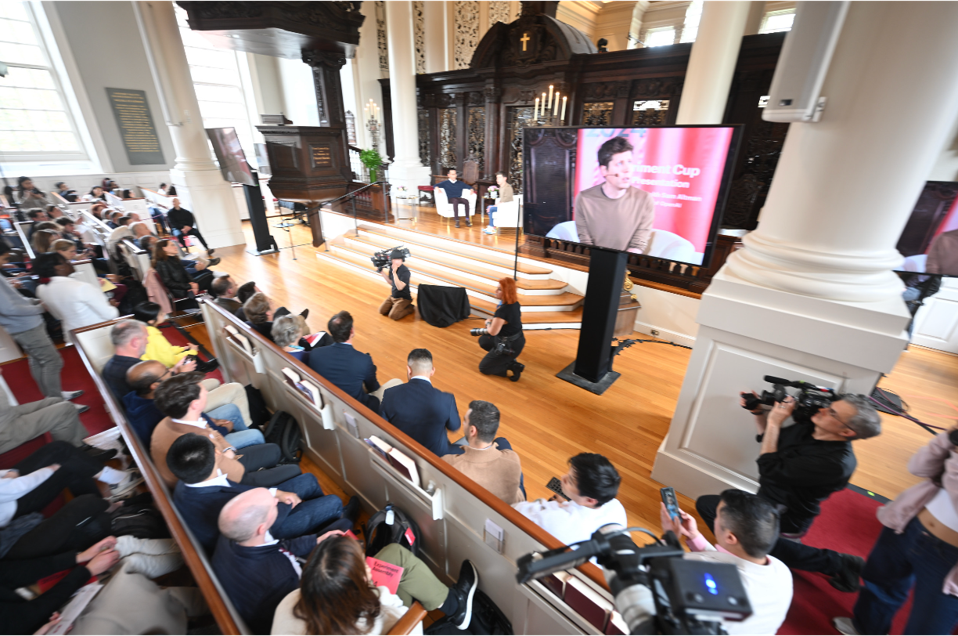During his speech at Harvard May 2, Sam Altman was telling us a lot about the times that we live in, and the opportunities that we have, as well as the challenges that we face.
One of the questions sent his way was around the need for energy to drive artificial intelligence balanced with its promise for figuring out decarbonization.
“It is true that AI needs a huge amount of energy,” he said, “but (it’s) not huge relative to what the rest of the world needs … If we spend 1% of the world’s electricity training powerful AI, and that AI does figure out how to get (to carbon goals) that would be a massive win, (especially) if that 1% lets people live their lives better.”
The Internet, he said, brought a net savings in energy, and AI might, too.
“We’re going to keep figuring out way more efficient algorithms, way more efficient chips,” he said. “We’re going to power up stuff this way – I think it is important to address this issue, but we will, in all of these fantastic ways.”
As for the fatalism of some climate hawks and people who are bearish on new technology, Altman suggested that it’s better to proceed from a positive angle and take initiative to try to make the world better.
“It’s a deeply unproductive streak,” he said of pessimistic outlooks prophesying general doom and gloom, where he promoted making goals toward prosperity and abundance. “We need a better life for our children – make a part of your life initiative to fight against this – that’s the only path forward … there will always be people who wait and sit around and say ‘we shouldn’t do AI because we may burn a little more carbon, we shouldn’t do AI because we haven’t fully addressed bias’ – the anti-progress streak, the ‘anti-people-deserve-a-better-life streak … is something that we can all fight against.”
That brought rousing applause!
Talking about the idea of figuring out what AI can contribute, Alman mentioned the clamor for scientific discovery and how AI might facilitate that.
“Everyone wants more, better, faster,” he said. “Science is how we get there.”
He talked about the possibility of everyone having an expert in their pocket to help them self-optimize, and other major potential achievements that could bring net positives.
Later, Altman had some words for young researchers.
“I think you can take more risks than usual,” he said. “I think you can have more impact – I certainly would be biased to do something with AI. I think, in general, the core, the most important lesson to learn early on in your career, is that you can kind of figure anything out, and that no one has all the answers when they start, but you just sort of stumble your way through it, – and you try to drift toward the most interesting problems to you, and be around the most impressive people, and have this trust that you’ll successfully iterate for the right thing, and you can do more than you think, faster than you think.”
He boiled a lot of this down to the phrase “just do stuff”, saying that it sounds empty, but is actually a powerful concept.
He also suggested young career professionals can develop a personal mission statement or signal of what they’re passionate about as a way to move forward.
When asked about startups, he was similarly optimistic:
“Startups tend to succeed right around the time a big platform shifts,” he said. “Big companies are slower and less innovative than startups, but they have a lot of other advantages.”
The time, he suggested, is now – when AI is revolutionizing business in a major way. He pointed to the aftershocks of technologies like the Internet, and also AWS cloud services, which had its own big impact on the market.
“For over a decade, we’ve just been sort of waiting,” he said. “If history is a guide, it’s an amazing time to start a company.”

